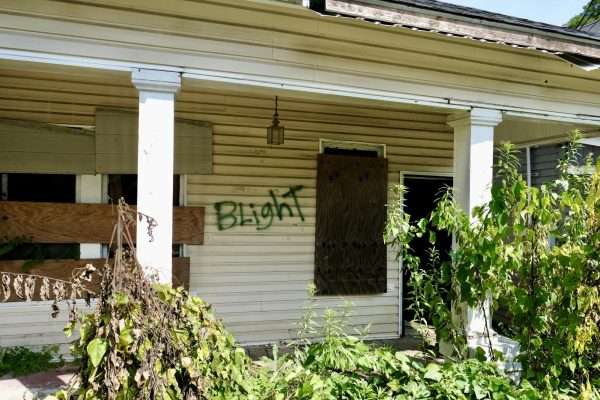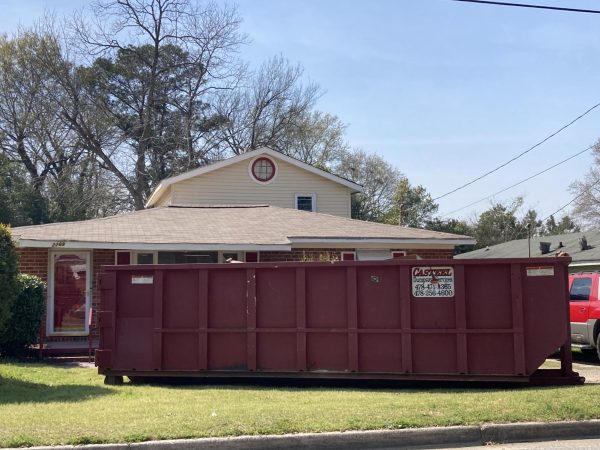Just Curious: What’s next for the two First Baptist churches in Macon?

When The First Baptist Church is mentioned, it’s important to decipher between which one is being referred to.
There’s two here in Macon, but they share more than just a common name.
The First Baptist Church of Christ in Macon and the First Baptist Church of Macon have been a part of our local community since the 19th century.
The two churches have a number of differences, but the most obvious when you enter a sermon would be race. This clear difference has followed them.

During the beginning stages of the churches, humans were used as property assets to keep institutions alive, according to Douglas Thompson, Mercer professor of History and Southern Studies.
According to a CBS special with James Brown in 2016, “In 1826, there was only one First Baptist Church in Macon. White slave owners worshiped in the front with their slaves in the back. But, by 1845, church records show that the slaves outnumbered their owners two to one – so a separate church for blacks was formed.”
The current pastors Rev. James Goolsby of the First Baptist Church of Macon and Rev. Scott Dickison of the First Baptist Church of Christ are looking to spend their tenor as leaders forming a relationship between the two congregations to in turn, allow the relationship to make an impact on the community.
This summer, the pastors and a few members of their congregation traveled to The Duke Divinity School for The Summer Institute for Reconciliation.
We were just curious about what they learned and how their training will change their approach to talking about race within their congregations and the larger Macon community.
“James and I really were in the thinking that we had taken this relationship and this covenant between our two churches about as far as we can take it on our own,” Dickison said. “We really needed some more perspective to help us figure out what the next step would be.”
Dickison and Goolsby participated in the week-long experience together.
“I rode up with Scott’s members and Scott rode up with mine,” Goolsby said. “We made sure that there were blacks and whites rooming together.”
Goolsby said his class was dealing with how to reconcile tragedies. He mentioned that at some points, everyone was in tears.
They discovered baggage that they were carrying and they learned to not just point fingers, but to look at themselves too.
Dickinson said he learned that reconciliation is a much deeper and wider thing than we give it credit to be. Goolsby agreed that reconciliation takes work.
“The hope is that one by one, our members become reconciled and it has an impact on the city,” Goolsby said. “Definitely on our churches, but even more on the city.”
Later this month, the churches are meeting for their annual Thanksgiving potluck.
Goolsby and his congregation will host Dickinson’s congregation. They’ll celebrate the anniversary of Goolsby’s church.
The churches also do tutoring together at Ingram Pye Elementary School. They read to the second, third, fourth and fifth grade students.
“We want to make an impact but before we get there, we want to develop the relationship between the two churches.”
They are also planning to collectively renovate a nearby park and host a joint celebration for the opening.
“We’ve gotten [our members] more involved in the process so that it’s not just driven by [Scott’s] relationship with me, so that it will carry on even when we’re off the scene,” Goolsby said.
Scott said the whole conversation about race and the churches and their history has changed in his church.
“It’s given us a lens through which to approach the last couple of years in our country in which we’ve seen so much blatant racial violence,” Scott said. “It’s given us a way to respond to that through our relationship here with New Street.”
Scott said he hopes that his church continues to be a place that sees the racial violence in our country as something that has to do with us and the gospel. He says he thinks it’s imperative for them to become a force for good.
Scott also meets frequently with other African American clergy from local Macon churches to talk more about race in the city, and what they can do to unite the community.















